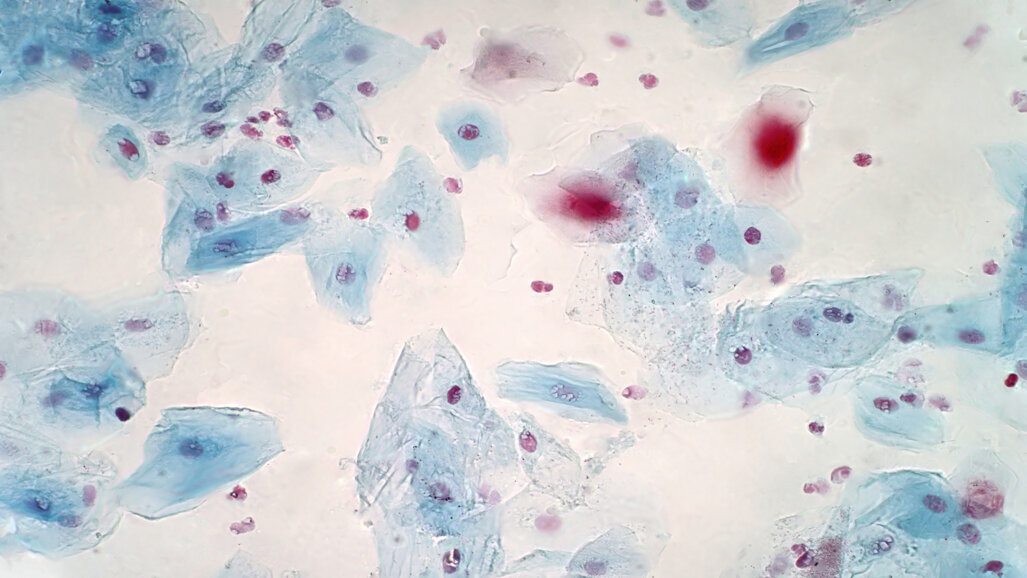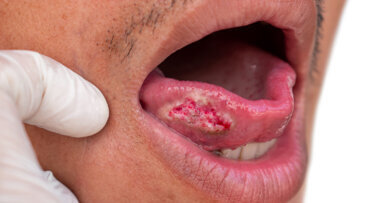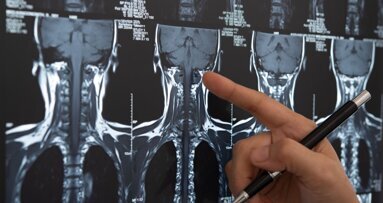LONDON, England: Treatment of head and neck cancer is notoriously complex, and only few advances have been made in the last 20 years. Last month, however, a team of researchers based mainly in the UK made the startling discovery that Fusobacterium, a genus of bacteria that research has firmly associated with the presence and development of a variety of cancers, may also play a crucial role in combating head and neck cancer. The discovery holds significant promise for predicting the survival rates of head and neck cancer patients as well as for further establishing the processes through which the bacteria combat carcinogenic cells.
Within the research community, Fusobacterium is typically considered to be carcinogenic. For example, recent research reported Fusobacterium to be present and in higher abundance in oral and head and neck cancer samples compared with non-cancer samples, and the authors said that this may suggest that Fusobacterium may contribute to oral and head and neck cancer development. Similarly, another recent study found Fusobacterium to be abundant in oral tongue cancer.
In contrast to this strong pathological correlation, a team of researchers mainly based at Guy’s and St Thomas’ NHS Foundation Trust and King’s College London last month published a paper that points in the opposite direction, illuminating a hitherto unknown positive capacity of the bacteria. Their findings show, firstly, that head and neck cancer patients harbouring higher levels of the bacteria consistently had a better prognosis than those with lower levels of the bacteria and, secondly, that Fusobacterium possesses the capacity to, in fact, destroy tumour cells. Speaking to Dental Tribune International, Dr Anjali Chander, a senior clinical research fellow at Guy’s Hospital, and Dr Miguel Reis Ferreira, a clinician scientist at King’s College London, two of the study’s authors, commented on the dynamics of this process.
“We are currently exploring the underlying mechanisms of this observation, but from preliminary experiments, we have established that the action of Fusobacterium on head and neck cancer cells is likely via a molecule it produces and releases. Additionally, all of us have plenty of these bacteria in our mouths, and only a small fraction of humans will develop mouth cancers.”
With discoveries of this nature, hopes are often quickly raised that a definitive treatment for cancer has finally been found. While emphasising the significant promise of their research, Drs Chandler and Ferreira also cautioned that there is still much to be learned.
“This research will help further knowledge of how bacteria and cancers interact and is the first step in optimising head and neck cancer treatment outcomes for patients. However, we still need to better understand its role, how best to use it and whether we can harness these properties in cancer treatment,” they said.
The study, titled “Fusobacterium is toxic for head and neck squamous cell carcinoma and its presence may determine a better prognosis”, was published in the August 2024 issue of Cancer Communications.
Topics:
Tags:
RIZE, Turkey: According to the American Cancer Society, 58,450 new oropharyngeal cancer cases and 12,230 deaths are expected in the US alone in 2024. The ...
OSLO, Norway: Head and neck cancer is the seventh-most diagnosed cancer group globally, and among its treatment modalities is radiotherapy, used as the ...
BARI, Italy: An increasing number of products are appearing on the market aimed at replacing toothpastes and mouthrinses containing synthetic constituents ...
SOLNA, Sweden: The oral cavity represents a complex microenvironment where a diverse microbial community flourishes. A recent review study, carried out by ...
Live webinar
Tue. 24 February 2026
6:00 pm UTC (London)
Prof. Dr. Markus B. Hürzeler
Live webinar
Tue. 24 February 2026
8:00 pm UTC (London)
Prof. Dr. Marcel A. Wainwright DDS, PhD
Live webinar
Wed. 25 February 2026
4:00 pm UTC (London)
Prof. Dr. Daniel Edelhoff
Live webinar
Wed. 25 February 2026
6:00 pm UTC (London)
Live webinar
Thu. 26 February 2026
1:00 am UTC (London)
Live webinar
Tue. 3 March 2026
4:00 pm UTC (London)
Dr. Omar Lugo Cirujano Maxilofacial
Live webinar
Wed. 4 March 2026
1:00 am UTC (London)
Dr. Vasiliki Maseli DDS, MS, EdM



 Austria / Österreich
Austria / Österreich
 Bosnia and Herzegovina / Босна и Херцеговина
Bosnia and Herzegovina / Босна и Херцеговина
 Bulgaria / България
Bulgaria / България
 Croatia / Hrvatska
Croatia / Hrvatska
 Czech Republic & Slovakia / Česká republika & Slovensko
Czech Republic & Slovakia / Česká republika & Slovensko
 France / France
France / France
 Germany / Deutschland
Germany / Deutschland
 Greece / ΕΛΛΑΔΑ
Greece / ΕΛΛΑΔΑ
 Hungary / Hungary
Hungary / Hungary
 Italy / Italia
Italy / Italia
 Netherlands / Nederland
Netherlands / Nederland
 Nordic / Nordic
Nordic / Nordic
 Poland / Polska
Poland / Polska
 Portugal / Portugal
Portugal / Portugal
 Romania & Moldova / România & Moldova
Romania & Moldova / România & Moldova
 Slovenia / Slovenija
Slovenia / Slovenija
 Serbia & Montenegro / Србија и Црна Гора
Serbia & Montenegro / Србија и Црна Гора
 Spain / España
Spain / España
 Switzerland / Schweiz
Switzerland / Schweiz
 Turkey / Türkiye
Turkey / Türkiye
 UK & Ireland / UK & Ireland
UK & Ireland / UK & Ireland
 International / International
International / International
 Brazil / Brasil
Brazil / Brasil
 Canada / Canada
Canada / Canada
 Latin America / Latinoamérica
Latin America / Latinoamérica
 USA / USA
USA / USA
 China / 中国
China / 中国
 India / भारत गणराज्य
India / भारत गणराज्य
 Pakistan / Pākistān
Pakistan / Pākistān
 Vietnam / Việt Nam
Vietnam / Việt Nam
 ASEAN / ASEAN
ASEAN / ASEAN
 Israel / מְדִינַת יִשְׂרָאֵל
Israel / מְדִינַת יִשְׂרָאֵל
 Algeria, Morocco & Tunisia / الجزائر والمغرب وتونس
Algeria, Morocco & Tunisia / الجزائر والمغرب وتونس
 Middle East / Middle East
Middle East / Middle East












































To post a reply please login or register